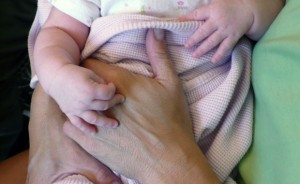Pregnancy discrimination continues to pose a threat to women working or those looking to enter the workforce. For the first time in 30 years, the EEOC has updated its pregnancy discrimination guidelines to clarify the law for employers. The new guidelines articulate the law and make it clear to employers that failing to provide “reasonable accommodations” to pregnant women can be considered illegal discrimination under federal law.

In California and nationwide, women have been forced to confront employers who have failed to comply with “reasonable accommodations” requests. According to the EEOC, the guidelines are a necessary response, as pregnancy discrimination complaints are on the rise. Representatives from the EEOC have been overwhelmed by the number of complaints and the egregious employer actions that run afoul of the law. Being forced to respond to national complaints, the agency is hoping to curb future discrimination by making the law very clear for employers. Our Orange County pregnancy discrimination attorneys are dedicated to protecting the rights of women in the workforce. We will investigate any case involving pregnancy discrimination and will pursue every available avenue to achieve justice for employees.
The new EEOC guidelines mark a shift, clarifying in no uncertain terms, federal laws that may have once been confusing. The Pregnancy Discrimination Act of 1978 has been interpreted differently, both by employers and human resources departments, as well as by the courts. Lower courts have often interpreted “reasonable accommodations” differently and now a current case is headed to the Supreme Court for review. The EEOC is intervening early to clarify the laws and to prevent future pregnancy discrimination. According to agency leaders, the new guidelines are necessary at time where pregnancy discrimination continues to pose a problem in workplaces nationwide.
The new guidelines state that pregnancy-related conditions are also covered by the Americans with Disabilities Act, another law that entitles workers to some accommodations. Employers must provide reasonable accommodations, including light-duty work. Critics say that the EEOC is overreaching, when the Supreme Court decision could render their recommendations inapplicable. Still, lawyers from both sides agree that the case is very specific and that the EEOC recommendations are unlikely to have any bearing on the outcome of the case.
The guidelines also complicate the Hobby Lobby decision, by requiring that employers provide contraception to employees. The recent Hobby Lobby decision gives employers the right to deny contraception based on religious grounds. Pregnant women cannot be penalized in the event that they cannot lift heavy objects. Employers have also been called out for denying bathroom breaks or for terminating employment after pregnancy is announced. The EEOC is also calling for equal parental leave for mothers and fathers and suggests additional leave for women to physically recover after child birth. The new guidelines give additional to protections to both fathers and mothers who work for companies with at least 15 employees, regardless of how long they have been with the company. Pregnant women who have suffered adverse treatment, including demotion, termination, or who have not been given reasonable accommodations during pregnancy or after childbirth should contact an experienced employment law attorney.
Employment lawsuits can be filed with assistance from the Nassiri Law Group, practicing in Los Angeles, Riverside, and Orange County. Call 949.375.4734.
More Blog Entries:
California Employment Law: New new Donor Protection Act, December 7, 2013 Orange County Employment Lawyer Blog
California’s Top Employment Law Mistakes, Oct. 26, 2013, Orange County Employment Lawyer Blog
 Orange County Employment Lawyers Blog
Orange County Employment Lawyers Blog

